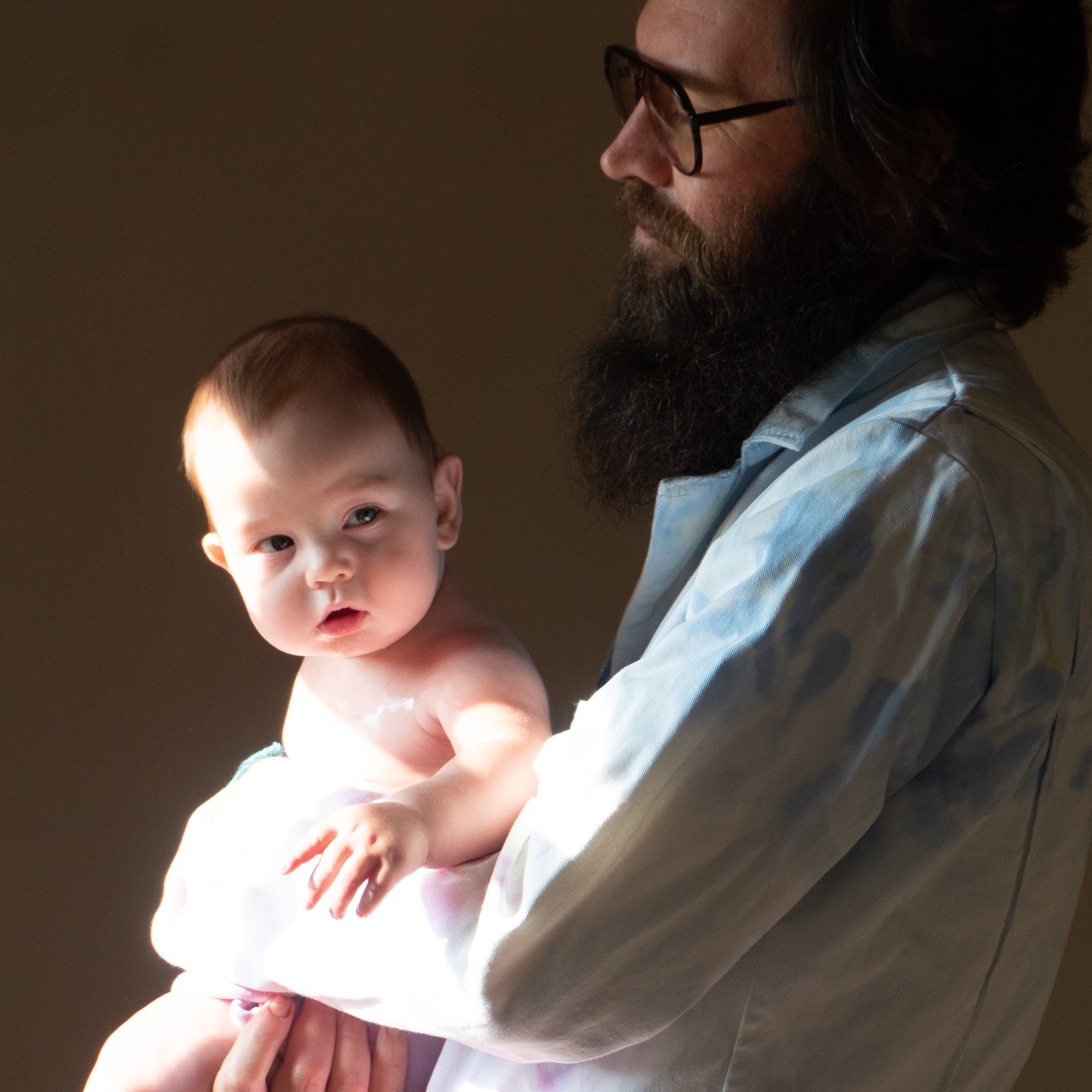
It's Personal
Why I'm Taking My Wife's Last Name
Who gets to decide which family names live on and which fade into history? New dad and soon-to-be husband Zach Thompson explores what makes a family as he takes his wife's last name.
- Photography
- Sally Voyles
- Written By
- Zach Thompson
What’s in a name? As a child growing up in the 80s and 90s with the first name Zachary, I had never given it much thought. Blame it on having to compete with at least two other Zachs in every classroom or the undeniable charisma of Mark-Paul Gosselaar, but it had never really felt like my own. So instead, I’ve been known as “Z,” the unavoidable “Zach Attack,” “Big Perm” after a poor choice of hairstyle, “Dr. Zeard,” even though I had dropped out of college twice, and lovingly by my friends as “Trash.” It’s the latter that perhaps best exemplifies my relationship with names - they always felt disposable.
So when my partner and I found out we were expecting our first child, I was surprised by how heavy the responsibility of choosing one suddenly felt. Those early days are full of small choices that seem monumental: whether to use cloth or standard diapers, what colors to paint the nursery, do you need a wipe warmer (the answer is no), but while most of these decisions fade away into the blur of stress, feedings, changes, and pure joy of new parenthood, this one felt different. A name is something they could carry around with them for the rest of their lives; how we introduce them to the world.
I had always assumed that when I had children, they would take my last name. Despite my long beard and questionable choice of tattoos, I’m at heart a traditionalist. I like a routine. I believe that dinner tastes better when eaten around the table together, long walks can be the best therapy, and Sunday nights were made for pizza.
Even though I never cared much for my first name, I always felt a sense of pride in my last, not because it was unique or historic, but simply because it was my family’s name. No matter our flaws and imperfections, the distance between us, or disagreements - it was our name, a public signal of our belonging. They were a part of me, and I was a part of them, Trash Joseph Thompson.
I wanted our children to have that same experience. We weren’t just naming someone; we were naming our someone.
But if my rhythm is a steady drumbeat, my wife’s is more like impromptu jazz–something I often don’t understand but always appreciate. She’s never been one to accept things without question. And if she’s taught me anything about my steadfast ways, it’s that traditions can be sacred, yes, but they can also prevent us from moving forward. So how do we decide which ones are worth preserving?
Although the tradition of a shared family name stems from laws meant to bond two people together as “one,” unfortunately, that “one” has always been the husband. Coverture laws required women to take their husbands’ names, and the simple mathematics of this deal left women with little to no rights when it came to things like personal property, real estate, and most legal proceedings. As a result, married women’s identity and history were essentially erased.
Which made me consider what could be lost. From the first moment I met my partner’s family, I have felt welcome. Over a decade, that welcome feeling has grown into an honest bond and a feeling of home. I am a part of their family just as much as my own. This sense of belonging brought all-new family traditions, stories of yesteryears, and hopes for the future. A heritage that now felt like mine and after this generation, would likely soon come to an end. Why should mine continue and not theirs?
So we decided that we would carry on the tradition of a single family name - a chosen lineage that would bind us together for all the world; it just wouldn’t be my own.
You can’t build a family without compromise; two people just can’t fit into one. Even when you split things straight down the middle, 50% my DNA, 50% yours, you still end up with something completely new. So, we learn to adapt. To take the best parts of ourselves, past and present, and piece them together to make a home.
Our decision isn’t revolutionary, it doesn’t right the wrongs of history, but it’s ours to make. And sometimes, the best way to honor a tradition is to change it. Who knows what may come with the next generation. Our children may love or hate their names, or maybe like me, they’ll simply trade them out for something new. Our world will continue to change, and so will our traditions. And just as my father may be confused about some of the choices I’ve made in life, it’s not up to us to decide what’s right for them.
So what’s in a name? It turns out it can be a whole lot or nothing at all. I’m proud of our new family name, but the name I care about most is “Dad.”